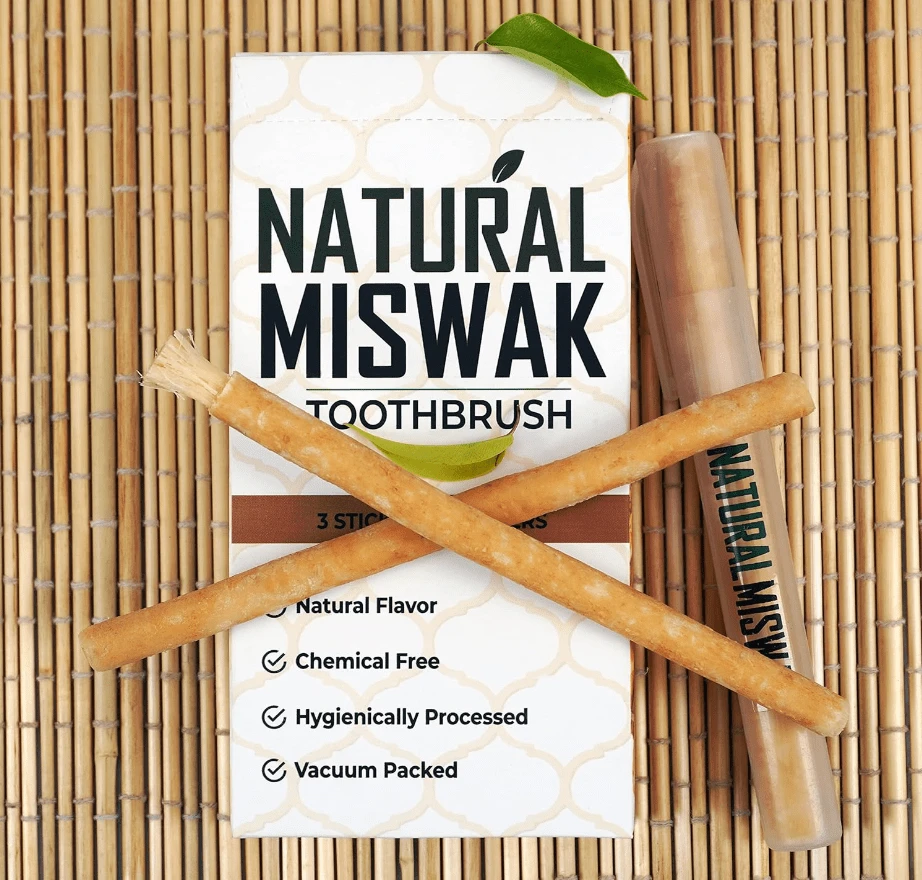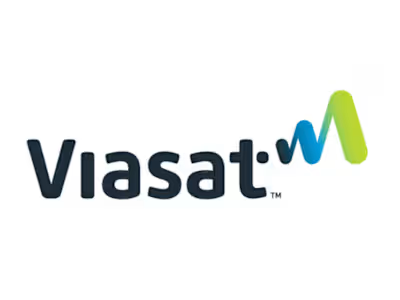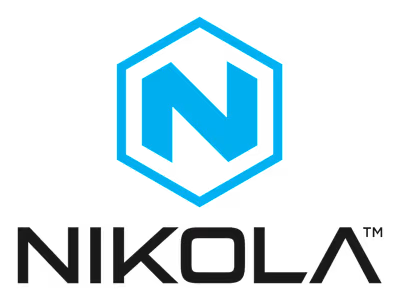Dr. Bronner's All-One!: Product Extension Proposal

Bringing the Root Toothbrush, Miswak to the USA
Executive Summary
Dr. Bonners is an environmentally conscious company that provides support to its employees and their business partners as well as communities around the world to keep their vision alive. Because Dr. Bronner’s is heavily invested in taking care of the earth, a project on contributing to a solution to the detrimental damage caused by plastic would be a new idea that Dr. Bronners can possibly be persuaded into joining. Plastic has been a continuous issue around the world that contributes not only to global warming but also to the spread of toxins and even threats to our wildlife. The methodology used for this project was mainly research on the damage we human beings are causing to our earth. The limitations to this project were finding more information about the supply chain of India because it would have helped us better determine whether India is the most appropriate country to invest in to assist with our new invented product, a miswak toothbrush. There was also limited information pertaining specifically to toothbrushes and how toothbrushes, alone, contribute to global warming. While researching toothbrushes and the damage they cause to our environment, we found that in fact, they contribute to the millions of plastic wastes produced by humans. One of our positive findings was the way that Dr. Bronners can go about investing a little more of their efforts into helping with this matter. In addition, our introduction to a new natural product was a great find as we discovered that miswak, the root we would like to use to introduce new toothbrushes, has other benefits and properties that can align well with Dr. Bronners mission and can also be incorporated into some of their preexisting products. We concluded that miswak toothbrushes would make a great product that is environmentally friendly and could help cut back on the millions of pounds created annually by our plastic usage. Our recommendations are for Dr. Bronners to consider making this proposal one of their top priorities and fulfill one of their cosmic principles in treating our earth like home.
Business Overview
Business Overview
Dr. Bronner’s was founded in 1948 by Emanuel Bronner. Dr. Brones has been making soap for 150 years and has been organic certified for 60 years. Dr. Bonner’s mission is “making socially & environmentally responsible products of the highest quality—and by dedicating our profits to help make a better world. All-One!”. In the year 2017. Dr. Bronner’s was certified as a Fair-Trade company, and they use seven cosmic principles that guide their business. The principles are directed to different audiences starting with “work hard! grow! do right by customers, treat employees like family, be fair to suppliers, treat the earth like home, fund and fight for what’s right!”. Dr. Bronner’s has helped underdeveloped communities such as Ghana, Indonesia, Sri. Lanka, Samoa, among many others which has led us to believe Dr. Bronner’s would be able to contribute to the pollution problem caused by toothbrushes.
Our Proposal
Our proposal is for Dr. Bronners to build partnerships with local farmers and communities in India for the cultivation of the miswak root to make a sustainable toothbrush. In return, Dr. Bronners can also help contribute with the current community issues in India such as pollution, poverty, possible corruption among many others. The production of miswak toothbrushes will not only help the people in India by creating jobs, but also contribute to our extensive pollution issues as well. “Toothbrush disposal produces more than 50 million pounds of plastic waste in the United States”. Although it is common to think that the solution to plastic waste is recycling, “Even with 73% of the population equipped with curbside recycling programs (SPC, 2016), only 8.4% of the post-consumer plastic waste generated in 2017”. With Dr. Bronners involvement in this environmental issue, we believe this issue can be combated effectively and save our earth from further
Product Analysis
Miswak is a chewing stick made of the roots, twigs, and stem of Salvadora Persica. The way of using the Miswak stick is cutting off the first inch or so by using a knife. Biting down on the end and chewing it off can work as well. After exposing the wood underneath, start chewing on it to soften the wood so that it breaks up into fibrous bristles. It will be ready when the tip is soft enough. In order to keep it clean for hygiene maintenance, we provide it with an individual container to store it before and after use.
The main benefit of using Miswak is protecting teeth from decay and keeping them healthy, however, it also has more benefits such as antibacterial effects and therapeutic medicines. Miswak has the following ingredients: silica, resin, calcium, chlorides, fluorides, and tannins which are very important elements for dental care. Alkaloids is one of Miswak’s ingredients to cure cancers. Additionally, it has vitamin C and can be an essential oil that imparts a mild taste and fragrance, stimulates the production of saliva, and helps relieve flatulence.
As described above, there are a lot of health benefits to using Miswak. Also, the cut stick can be reusable, expanding into different products such as mouthwash or soap by smashing up to a powder. Moreover, sticks are affordable, have no expiration date, and one stick can be used for 30 to 40 days. Due to its eco-friendly benefits, we propose to promote the product with emphasis on the benefits with the “story” behind the project in India by using a website and advertising. Since people do not usually get interested in second-quality products and Miswak is unwell known in the US, we need to put additional quality to differentiate from competitors and increase awareness. Some people might think it is bothersome to cut the stick constantly; therefore, we need to deliver the story of the program to consumers along with the benefits of the product for both people and the environment to encourage people to use the product.
In addition to the fact that the Miswak is not well known in the US and Dr. Bronner has a well-known product, eco-friendly soap, it might be difficult to incorporate the Miswak products with the product they already have. Telling the story to consumers is a good way to promote the product, however, we also make an additional proposal to further expansion of the existing product and promote the Miswak product at the same time by making a gift package of Miswak toothbrush and the toothpaste that is already for sales using its well-known brand name. Promoting the package as a gift for other people will help to expand the awareness of Miswak and its benefits further to people.
Since Miswak is reusable and has a lot of benefits, we can also propose a program using the waste to help poor countries where people are not even able to get daily use items. The program is that customers can return their waste to Dr. Bronner so that they can reuse the waste for making soaps, and medicines; these reused products will be sold in the US market and be given to people in poor countries. This program can accelerate awareness of the product.
Public Relations Plan
Public Relations and Philanthropy
India is a wonderful country full of diversity and culture, but underneath there is a lot of corruption and unethical practices that make it hard to enter the market. Many companies in India will exaggerate their products to mislead consumers on the quality and the ingredients. They will take part in greenwashing which in the long run causes a lot of confusion and mistrust in the consumers. Some other companies will aggressively fight the competition by using unfair tactics like bribes or blackmail. The consequences of unfair competition are scandals, mistrust, and bad branding. Another unethical practice that companies in India do is they mistreat Employees. They make their employees work long and underpaid hours while in hazardous conditions. The laws in India are different from the United States in which employees are often battling sexual harassment and child labor. All of this will make it hard for Dr. Bronner’s to enter the market, but our mission is to not only sell a wonderful product but to help the environment, the community, and the local farmers.
Environment
Due to the fast-paced industrialism that has taken place in India these last few years, the once beautiful land is now heavily polluted. India is currently struggling with air pollution, poor waste management, water scarcity, water pollution, land and soil degradation, biodiversity loss, and bad preservation of the forests. “Overall, 70 percent of the freshwater sources in the country were found to be contaminated and India ranks 120 out of 122 countries in terms of water quality. Major sources for contamination were pollution by landfills, septic tanks, leaky underground gas tanks, and from overuse of fertilizers and pesticides. A large volume of untreated domestic sewage was also being discharged into local water bodies. One of the reasons for this situation was the absence of water treatment capacity at the desired level.”(Statistica) Our proposal to set up a miswak farm would help improve the water quality, the land, and the air pollution.
Community
To combat the unethical practices and the environmental issues, our proposal includes some programs and philanthropy efforts to help the community. We propose that wells are made by the miswak farm to sustainably hold water when it rains to use on the roots. Then in turn, the excess water can be given back to the community to combat water scarcity. Another proposal is to help educate the community on pollution and how to recycle. We would like to encourage people in the community to recycle by offering incentives. In India, women are treated as property and are controlled by their father’s or husbands. We also want to encourage a program where women fleeing domestic abuse are given jobs and provided with education to help get a head start in life. We propose a planting program that for every miswak tree planted, a tree will be planted in the forest. This will aid with the air pollution problem and to help preserve the forests. We also propose that a rewards program be set in the United States where the product will be sold. This will encourage less waste in the United States and help bring awareness to the customers of what Dr. Bronner’s is doing to help the environment.
Farmers
We want to implement Dr. Bronner’s vision of fair trade between companies in India and producers already established in India. We want to combat the issue of unfair businesses and corrupt practices by making sure that producers and farmers are being given fair prices and that all the pay is going to the local producers. Our proposal is to use Teatulia’s model for collaborating with the local farmers for resources such as dung, soil, and natural pesticide. We also propose that Dr. Bronner’s collaboration with the local farmers to buy produce is being created sustainably and organically. In this way Dr. Bronner’s would not be competing with the local businesses but collaborating and creating a strong alliance.
Supply Chain Management
Due to Miswak having multi-purpose uses, it has been used by the majority of the communities in India for decades, thus, creating a higher demand and supply for it. Since Miswak has several medicinal properties, it has become a highly demanded product in the Indian Herbal Drug Industry. Miswak is commonly used as a toothbrush in villages and rural regions in India. Miswak is considered as one of the medicinal plants in which its demand and supply are over exploited and appropriate conservation measures were not applied timely for several decades in India, leading to Miswak’s mass extinction.
As a team, we suggest that Dr. Bronner’s to consider investing in a cropping facility and farm house in India and harvest their own Miswak since it is a highly demanded product with less competition world wide and has a threat of becoming extinct because there is a lack of supply and the production of Miswak trees is not taken care of to great measures. Dr. Bronner’s can make an impact and eliminate the risk of extinction if it tries to invest in harvest management, carbon mitigation, and conservation.
To supply the production of Miswak, farming land should be purchased, particularly in the regions where Salvadora Persica (Miswak shrub) can be planted in dry, arid, and saline regions like in the villages of Gujarat, Rajasthan, and Punjab. It must be planted in crops where groundwater is readily available on river banks, in seasonally wet sites, and in drainage lines in arid zones. Fencing should be set up in the farming crop areas so that the cultivating seedlings and trees are protected from browsing animals. The Miswak shrub can be well adapted to alkaline conditions or very saline soils, usually clay rich. However, the shrub can also be found in loams, black soils, and sands. It can be understood that the shrub can be well adapted to drought conditions and is salt tolerant. The shrub has a deep root system which stays protected during heavy winds, keeping the crops protected in an agroforestry system.
Moreover, the planting of the Salvadore Persica, creates a salt concentration for the soil that would inhibit the growth of most other crops in the region, creating more agricultural resources for Dr. Bronner’s. The production of Salvadora Persica has some positive effects on the environment. For instance, Salvadora Persica plants have deep roots, fleshy and droopy leaves that are vertical in position which helps reduce the heat in hot environments. There are some downsides to planting this tree, it includes the fact that the tree takes 8-12 years to mature, meaning it has a long life cycle but slow growth. Additionally, seeds that are needed for cropping and harvesting are usually dispersed by birds.
Growing Salvadora Persica in India not only creates Miswak but it also provides more opportunities for product expansion later on. Since seeds will be used in the production of the tree, the dried seeds contain about 40% oil which is of great economic value. Dr. Bronner’s can take advantage of the dried seeds for use in commercial business. For instance, the oil of Salvadora dried seeds can be used in soap making, candles,detergents,and can be used as a substitute for coconut oil. The dried seeds of the Salvadora plant contain about 40% of fatty acid composition, which makes a brilliant soup product. The cropping of the tree provides more opportunities for product extension. The demand for the oil of Salvatora tree has been increasing since several companies in India are taking advantage of it from villages and selling to big companies in big cities like Godrej Soaps Ltd., Mumbai, and Tata Oil Mills., Mumbai.
Furthermore, seeds can be collected from purple coloured fruits during April and May seasonal periods. There are procedures to effective planting of Salvadora trees to maximize the production of Miswak, root toothbrush. The process begins with land application and fertilizer application. During the initial stage, seeds are soaked for 24 hours in fruit pulp solution, Salvadora Persica. The farming land needs to be plowed during the first week of June and should be kept uncultivated for 25 days for solar exposure of drying weeds, aeration, and facilitating crop residues. During the planting of the farming field, weed control and disease and pest control measures must be enforced. For optimum production, manual hand weeding must be done for Salvadora Persica plantations to ensure weed control. Dr. Bronner’s would have to ensure there is optimum transplantation and spacing in the land. Plantation of crops with a spacing of 5X5 meter is considered optimum for best growth under field conditions. This optimum spacing of land will provide 200 kg of roots after two years of harvesting.
During the harvest management process, crops can mature over time. Seeded fruits require about 4-5 months to mature, specifically during peak periods from December to May. These periods are high sale periods in the United States as it is the time of Christmas and end of year where several people like to give and donate for good causes. Roots will also be readily available for Miswak packaging. Next, as the plant grows, it becomes uprooted after 2 years of growth for root production. The roots are then manually separated and dried into leaf, stem, and roots with a stainless knife. This also means gardeners have to be employed during the supplying process, along with purchased machinery and equipment.
Financial Plan
There are several costs associated with the production of Salvadora Persica in India. Those costs include the land of purchase for cropping use, machinery equipment, farming employees, fertilizers, and water supply expenses in India. If Dr. Bronner’s chooses to make a one time investment on a purchase of farming land for mass production, an agricultural land in Gujarat’s rural village in India would cost $18,200 per Acre. The land is located in Garod, Kheda District of Gujarat and can extend to 3 Acres, which is about 130,680 square feet. All of which can cost Dr. Bronner’s a total of $54,600 for land purchase. According to the property for sale platform, SFarmsIndia, the land is about 6 km from Kapadwanj Town, making it convenient for immediate export via train stations to be delivered to Mumbai for final destination delivery, the United States. This specific land can also be good for Cotton cultivation as the seller stated in the website.
Modern machinery is essential for best production practices. The quantity and type of machinery that will be required for Salvadora Persica production includes one tractor, one power tiller, one rotavator, two seed drills, one power spare, one drum seeder, one multi-thresher, irrigation pipe extending 100 meters, and two pump sets. All of which will cost approximately $6,040 per tractor, $846 per tiller, $1,450 per rotavator, $725 for two seed drills, $302 per power spare, $97 per drum seeder, $604 per multi-thresher, $1,087 for the irrigation pipe, and $850 for two pump sets, as stated in “Agri Farming India Government” website.
However, in India, hiring good managers that can take over the farming project is critical for the success of foreign business and cost reduction. Hiring expert harvesting farmers and a good machinery manager can help in controlling the machinery and power costs per acre. Dr. Bronner’s can create employment in this rural region by employing family groups where spouses and children can take part in growing the farm. While implementing this strategy, the farming land will fall under the Agricultural Mechanization Scheme in which Dr. Bronner’s can take advantage of the machinery leasing options and funding from Farm Machinery Bank of India. An average salary of a crop farmer expert costs $10,600 per year. Employing a harvest manager will cost $620 per month.
Moreover, about 400 kgs of fertilizers per acre is required for the production of Salvadora Persica. Fertilizers cost about $88 for 400 kgs. It would be best to buy it in ton as it will be used heavily in the production process. Buying in ton would cost on an average of $950 per ton of fertilizer. Furthermore, according to a Business Today Magazine post, a business unit in India that uses 1,500 liters of water an hour would cost about $3,320. This means there is shortage of water in India and it is a water crisis affecting cropping and leading to extinction of several plants. Monthly electricity expenses for the farm house can cost about $121.
According to a potential competitor, Sewak Al-Falah, it costs $0.30 cents to produce Miswak and can be sold in bulk of 10 root pieces for a price of $10. The competitor, Sewak Al-Falah offers for $9 for a bulk of 10 pieces.
Conclusion
To sum up, Salvadora Persica is a large shrub or small tree that is planted in dry and high salt tolerant regions like Gujarat, India. The plant is highly used for medicinal purposes. The stems of the plant are used as toothbrushes in rural areas of India. Apart from the plant’s medicinal benefits, the plant can also be used for carbon reduction and storage. As Salvadora trees grow slowly throughout the years, it can absorb carbon for longer durations with lesser economic cost and management skills. The excessive exploitation of the Salvadora plant over several decades has caused a threat of this mult-purpose tree, meaning it can go extinct if governmental and business actions are not supported for its growth and restoration. To save the plant from becoming extinct, high profile businesses like Dr. Bronner’s, NGO organizations, and the Central And State Machinery can implement timely measures to save, restore, and conserve the plant production.
References
Like this project
Posted Dec 13, 2023
The paper suggests Dr. Bronner's invest in a sustainable product, a Miswak toothbrush, to address plastic pollution and align with their environmental mission.






